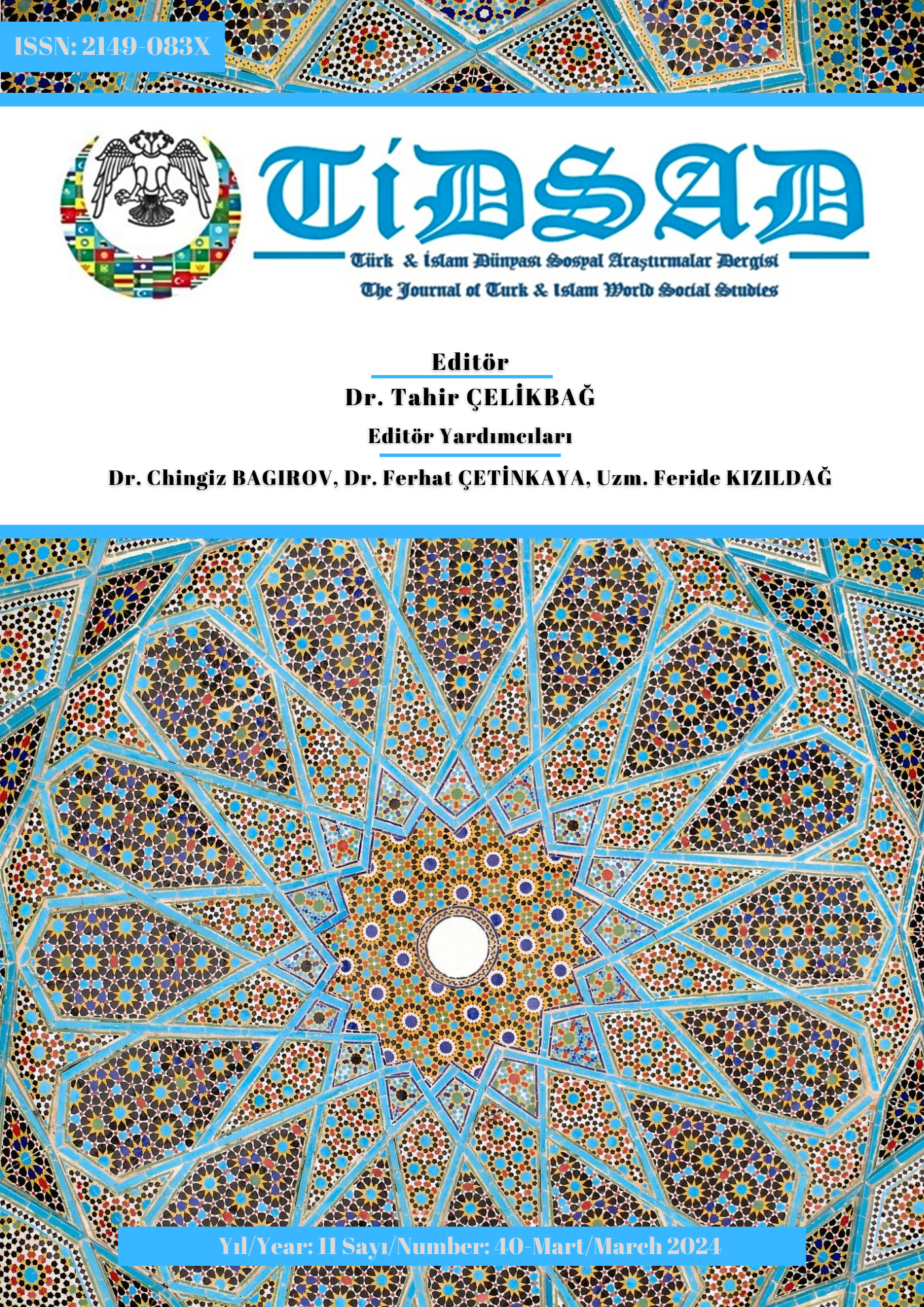Author :
Abstract
Modern Mısır edebiyatında roman ilk örneklerinden itibaren toplumsal yapıyı eleştirme ve yapılandırmada büyük rol oynamıştır. Tüm dünya edebiyatlarını etkisi altına alan ve alt başlıkları göz ardı edilerek romantizm ve gerçekçilik adı altında değerlendirilebilecek olan akımlar ülkenin kendi dinamikleriyle ilgili olarak farklı zaman dilimlerinde ortaya çıkmış, toplumsal ve siyasal yapılanmada meydana gelen değişiklikler bu çerçevede romanın konusunu olmuştur. İlk dönem Mısır romanı Batıyla temas sonucu yaşanan farkındalıkla Mısır toplum yapısını eleştirmiş, kimi zaman modernitenin çıktıları romanın konusu olmuştur. İkinci dönem Mısır romanın ana sorunsalı sömürge ülkesi olmanın getirdiği yozlaşma ve fakirlik yanında bağımsızlığın kazanılması ve iktidar eleştirisi olmuştur. Her yazar kendi karakteristik özellikleri ve hayat felsefesi çevresinde gündemi yorumlamış, ilk örneklerinden itibaren mizah Mısır romanında yer yer görülürken bunun en bariz örneği Yusûf es-Sibâî’nin (1917-1978) Ardu’n-Nifâk (İki Yüzlülük Ülkesi, 1949) adlı romanı olmuştur. Roman sanatının ayak sesleri olarak isimlendirilen (1858-1930) el-Müveylihî (1858-1930) Hadîsi İsâ b. Hişâm (1907) adlı eserindeki fantastik düşünce, çok zaman sonra söz konusu romanda karşımıza çıkarken yazar kullandığı bu tarz ile siyaset, basın, bürokrasi ve toplumsal ahlak gibi pek çok konuyu eleştirme fırsatı bulmuştur. Daha önceki çalışmalardan üslup ve tarz olarak ayrılan eser eleştiriyi hikâyeleştirme özelliğiyle de farklılaşmaktadır. Çalışmada roman eleştirdiği başlıklar altında değerlendirilmiş ilgili pasajlarla konuya işarete edilmiştir.
Keywords
Abstract
Since its inception, the novel has been crucial to the critique and organization of Egyptian society through literature. The novel within this framework has addressed the changes in the social and political structure that have occurred in different time periods in relation to the nation's own dynamics. These movements, which can be evaluated under the headings of romanticism and realism without considering their sub-headings, have influenced all of world literature. Using the understanding that came from interaction with the West, the Egyptian novel of the first period attacked the Egyptian social structure; occasionally, the novel focused on the results of modernity. The Egyptian novel of the first period criticized the Egyptian social structure with the awareness arising from contact with the West, and sometimes the outputs of modernity were the subject of the novel. The main problematics of the Egyptian novel of the second period was the corruption and poverty brought about by being a colonial country, as well as the achievement of independence and criticism of power. Each author interpreted the agenda around his own characteristics and philosophy of life, and while humor was occasionally seen in Egyptian fiction from the earliest examples, the most obvious example of this was Yusûf al-Sibâî's (1917-1978) novel Ardu'n-Nifâq (The Land of Hypocrisy, 1949). The supernatural idea in al-Muwaylihī's (1858-1930) Hadīsi Isā b. Hishām (1907), which is called the footsteps of the art of the novel, appeared in the novel in question much later, and the author had the opportunity to criticize many issues such as politics, press, bureaucracy and social morality with this style. The novel differs from previous works in terms of style and genre with its characteristic of narrating the criticism. In this study, the novel is evaluated under the headings it criticizes and the relevant passages are pointed out.





